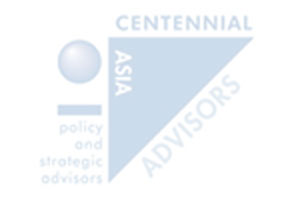- May 2, 2022
- Posted by: admin
- Category: Centennial Asia Insights
No Comments

China: Mounting challenges to compel far-reaching policy changes
Severe internal and external challenges are compelling China’s leaders to make fundamental policy changes.
- Near term: There has been a clear shift in favour of greater stimulus, with the focus not on maximizing growth but on ensuring stability.
- There are four reasons why the announced measures lack potency. The changes do not go far enough to restore consumer confidence. Neither do they provide incentives for local governments to implement stimulus actions swiftly. Private enterprise is not likely to be convinced that Xi will really turn away from suspicion of the private sector. And signs of divisions within policy circles are also a worry.
- Longer term: China will place greater emphasis on securing its geo-strategic position rather than on prioritizing growth. It will engage in a range of measures to solidify its position in southeast and central Asia while accelerating the inward turn in policies so as to reduce reliance on external demand.
Malaysia: Solid fundamentals to cap Ringgit weakness
- The Ringgit fell 3.6% against the USD in April, outpacing declines in the Thai Baht (-3.1%) and Singapore Dollar (-2.5%).
- Three factors explain why the Ringgit has weakened more than its peers in the region – the Ringgit’s significant correlation with the CNY, belated policy tightening by the central bank, and limited currency market intervention.
- Nevertheless, solid fundamentals will cap Ringgit weakness. The favourable trade position from the broad-based rally in commodity prices and relatively quiescent inflation will prop up the Ringgit, which we expect to come back to 4.2 against the USD by end-2022.
Implications of Recent Developments:
- Korea: Consumption and investment have slowed. The central bank’s rate hikes are cooling the overheating housing market which the incoming Yoon government has vowed to tackle.
- Indonesia: Investment data show that Indonesia is progressing in its efforts to accelerate economic growth. But policy flip-flops such as the ban on palm oil exports could undermine confidence in policy making.
- Singapore: Worries about rising inflation could prompt further policy tightening in October.
- Taiwan: Despite headwinds from China, strong tech exports and investment spending should help Taiwan achieve a robust 4% growth in 2022.
- Thailand: Both consumer spending and investment decelerated significantly in March. The recovery in tourism has also been sub-par.
- Vietnam: A strong recovery is underway, led by investment and exports. Domestic demand is also supporting retail sales growth. An anti-corruption crackdown is underway, with senior political and business figures implicated.
Read more: CAA-Weekly-2-May-22.pdf
2-May-2022
